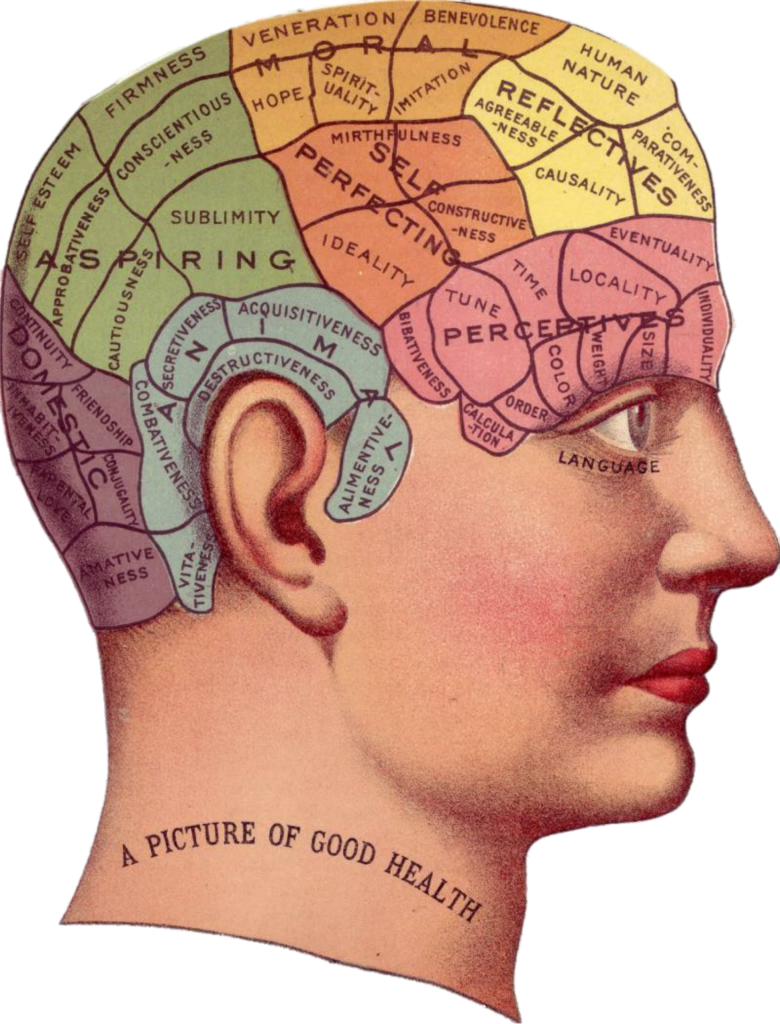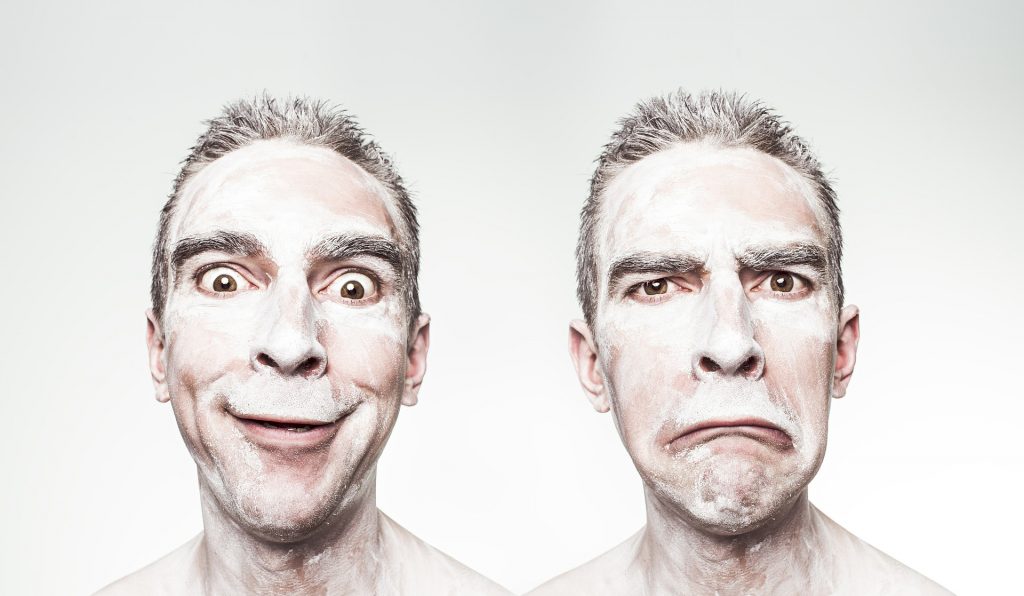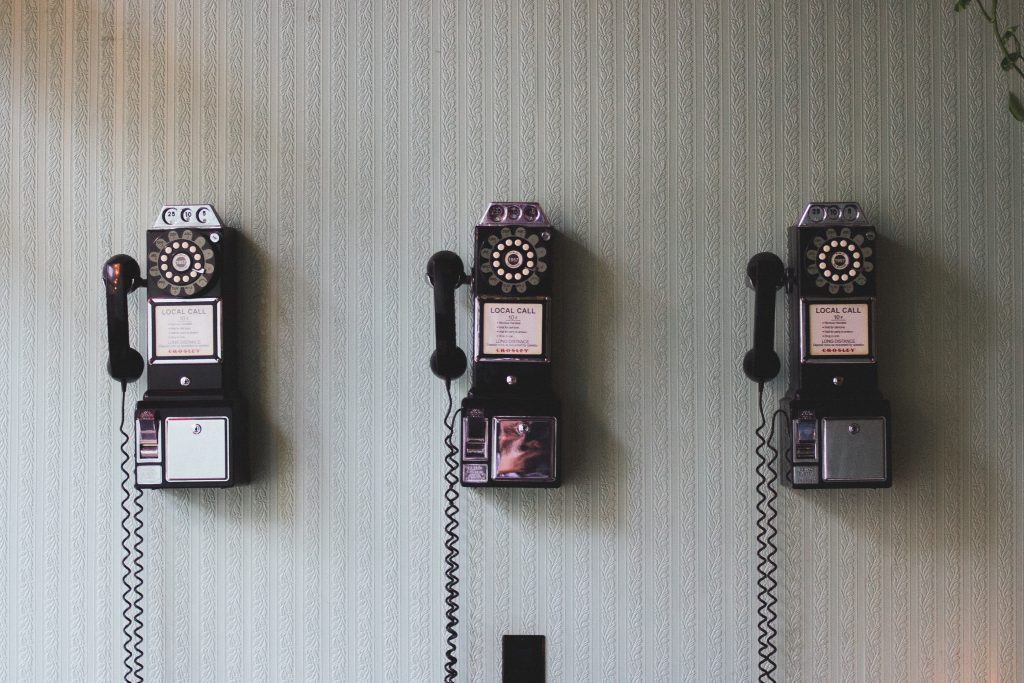We are a mental health charity that underpins everything we do with creativity, especially the written form of creativity. We have a Facebook Group that is full of support, understanding, and discussion surrounding mental illness – whilst allowing our members the freedom to express themselves using creative writing and self-expression through words.
It’s unsurprising that many of our members have struggled at the hands of stigma. Most people who have a mental illness will at least be aware of the stigma, even if they haven’t been directly affected by the stigmas of mental illness. 1 in 4 of us will experience mental illness in the next 12 months. Statistics suggest that 50% of those diagnosed with mental illness will find the associated shame and isolation of mental illness worse than the condition itself. Astounding, huh?
It’s because of this that we engaged our community in a conversation about the stigmas they had come across. This blog piece shares these with you, with any comments we have to debunk the stigma.

Mental health sn’t ALL in our head, and it is 100% real.
1. Mental illness is not real. In other words – it’s all in your head.
Mental illness derives from the brain – scientists cannot agree on the causation of mental illness, but the most popular theory is that serotonin plays a large part of it. That being said, yes, it stems from our head… but it certainly isn’t ALL in our head, and it is 100% real. Try telling someone who is mid-panic attack that it’s all in their head when their heart is beating out of their chest, they’re sweating, they feel like they cannot breathe, they have chest pains, and pins and needles everywhere – to name a few.
If you are lucky enough to have never experienced mental illness, who are you to pass judgement? You’re not. Sometimes the kindest thing people can do is keep their opinions to themselves when said opinions could hurt someone else’s feelings.
2. You are NOT normal.
Let’s start by looking at the definition of normal in the dictionary.
“conforming to a standard; usual, typical, or expected”
How many of us conform to a standard in everything we do, say, or think? None of us. One quarter of the world population will experience mental illness, so why do we treat it like it’s alien and not normal? 1 in 4 is a huge amount of us who will experience this. Whilst we wish it wasn’t an occurrence that was so widespread, it is. Doesn’t that mean it’s less of an anomaly than how people treat it?
Think on that.

How many of us conform to a standard in everything we do?
3. That you’re faking it for attention / monetary gain / to get out of having to work.
If you’ve had a mental illness or still have a mental illness, you’ll understand the absurdity of this statement.
Ever tried faking a cold for months, even years? Impossible, right? Same with mental illness. It’s utterly impossible.
The funny thing about that statement is that when you have a mental illness, the last thing you want is attention. Social isolation is all part and parcel of mental illness and attention could trigger very physical symptoms of the mental illness, such as a panic attack.
Money? Mental illness doesn’t discriminate. Some very famous people have spoken out about having a mental illness – the very people who don’t need to worry about money at all. Those who aren’t so financially fortunate do not make money off the back of their mental illness.
Shirking work? Let’s not forget those who have a mental illness but are high functioning. They work with their illness. People with mental illness often work and fight through their symptoms every single day because they have no other choice, unless they want to end up not being able to feed themselves – see? Who is financially gaining from a mental illness?

Some think poor mental health is just a cover for laziness
4. You are just lazy.
If you’ve ever had a mental illness, you’ll have probably told yourself this when you struggle to get out of bed.
The thing is, laziness is catalogued as being “unwilling” to do things. When you are struggling internally within your mind, it’s not an unwillingness, it’s a block, an inability. It’s not a conscious choice.
There are days where mental illness is a weight that is indefinable by words. A weight that binds you to the house, to the sofa, to the bed. You are literally and figuratively trapped by the thoughts and fears in your head and life is hard to live in those moments. But waking up, getting out of bed, feeding yourself, is a triumph. It’s the complete opposite of lazy, and until you live with the demons inside your mind, you won’t ever understand the true complexity that exists by living with mental illness.
5. You can turn it off.
If mental illness could be turned off, mental illness wouldn’t exist. No one chooses this, and if they could choose to not have it, I guarantee they would. ‘Nuff said, right?
6. You just need to get over it.
Sadly, this attitude only makes the problem bigger. Again, if “getting over it” was a choice, no one would have mental illness.
This indifference to someone’s health is damaging. Sadly, people aren’t conscientious enough to realise the seeming indifference conveyed when using those words. Unfortunately, they’ll continue to do so, to the detriment of other’s mental health, unless more people speak up and we educate society.

7. That someone’s self-proclaimed expert guru advice is needed to “snap out of it”.
This semi-relates to point 6, but this time we thought we’d challenge this stigma with one of our group member’s words:
No. I need you to listen. Just shut the hell up and listen. And afterwards, just sit with me. Having company in the silence is better medicine than someone telling me everything I’m doing wrong.
8. You’re weak if you can’t “fix” your issues without meds or therapy. And yet, at the same time, you’re “crazy” because you’re on meds and have a therapist.
It’s a lose, lose judgemental hell-storm.
Firstly, when did it become anyone’s business whether you’re having therapy or taking meds, and secondly when did it become okay to judge someone else’s circumstances?
Part of the problem with judgement is that it often comes from ignorance. Educate yourself, ask questions, and learn what people go through with a mental illness. Show some compassion, support, and understanding. That’s what’s needed here, not judgement.

Needing medication does NOT mean you are weak.
9. That if you’re diagnosed you’re a ticking time bomb. You’re dangerous.
Let’s hand you over to another of our group member’s here:
My family didn’t comprehend, until lately, that heated discussions, which ultimately turned fruitless, were just an attempt to purge, or bring to light, some festering thoughts, so as to reach clarification. Expression was all I needed, but that expression was passion-tinged and was misconstrued as unbridled anger.
If more people listened without judgement (refer to point 8), you’d realise that this statement only goes to further hurt those with mental illness. It leads to social isolation which helps mental illness grow in its strength and power.
Stow your judgements, listen, ask questions, and give your support.
10. You don’t “look” ill so therefore you mustn’t be ill.
Once more, a group member puts this into context:
It’s the ‘but you don’t look sick’ thing for folks with illnesses that don’t cover their skin with green boils or something. Dismissal. But you’re so confident (I’m dying inside but have learned to fake it and cope), and so outgoing (ditto, you never notice that I avoid any social situation I’m not forced into, or where I don’t know most of the people already? That even then, I’m on the side-lines or sitting in a corner petting the dog?), and so well-spoken (I guess I’m the only one that hears me stammering, feels my heart hammering, feels the flush of fear and embarrassment on my face).

But you don’t ‘look’ ill.
And finally…
Here are some more stigmas and thoughts our group members shared with us:
Shame, that you are broken. There is no hope of repair.
That you sleep too much.
You have nothing to offer to a conversation
You are not intelligent.
That your anxiety isn’t real if you don’t have visible panic attacks. I’m high-functioning, so I could be going about a normal everyday task with a straight face but inwardly feel like the world is caving in and I can’t breathe.
That a relationship can fix you.
You’re so ungrateful. You have a perfect life. You are so lucky. You should thank God. There is no reason for you to be ‘sad’ look at people around you that are less privileged. See their misery, you ungrateful person. Guilt shovelled onto me so often as if I don’t have a truckload already.
That it’s something you should be able to “will away.” That comes both from without and within.
Mental health is contagious, to be avoided at all costs, never to be spoken about. Ridicule and derision is an acceptable form of a coping mechanism for the ignorantly challenged.

We just need to talk more. You can always talk to PoetsIN.
We know we have a long way to go to educate people on mental illness, its symptoms, and the way it affects every facet of a life. We need to talk more about mental illness without fear of the above affecting us as mentally ill people. By just having these conversations, we prove each and every one of those stigmas wrong. Mentally ill doesn’t mean weak and talking about it shows just how strong we really are.
We’d love to hear from you. What stigmas have you faced? Leave us a comment below.
Please follow and like us:
We are a mental health charity that underpins everything we do with creativity, especially the written form of creativity. We have a Facebook Group that is full of support, understanding, and discussion surrounding mental illness – whilst allowing our members the freedom to express themselves using creative writing and self-expression through words.
It’s unsurprising that many of our members have struggled at the hands of stigma. Most people who have a mental illness will at least be aware of the stigma, even if they haven’t been directly affected by the stigmas of mental illness. 1 in 4 of us will experience mental illness in the next 12 months. Statistics suggest that 50% of those diagnosed with mental illness will find the associated shame and isolation of mental illness worse than the condition itself. Astounding, huh?
It’s because of this that we engaged our community in a conversation about the stigmas they had come across. This blog piece shares these with you, with any comments we have to debunk the stigma.
Mental health sn’t ALL in our head, and it is 100% real.
1. Mental illness is not real. In other words – it’s all in your head.
Mental illness derives from the brain – scientists cannot agree on the causation of mental illness, but the most popular theory is that serotonin plays a large part of it. That being said, yes, it stems from our head… but it certainly isn’t ALL in our head, and it is 100% real. Try telling someone who is mid-panic attack that it’s all in their head when their heart is beating out of their chest, they’re sweating, they feel like they cannot breathe, they have chest pains, and pins and needles everywhere – to name a few.
If you are lucky enough to have never experienced mental illness, who are you to pass judgement? You’re not. Sometimes the kindest thing people can do is keep their opinions to themselves when said opinions could hurt someone else’s feelings.
2. You are NOT normal.
Let’s start by looking at the definition of normal in the dictionary.
“conforming to a standard; usual, typical, or expected”
How many of us conform to a standard in everything we do, say, or think? None of us. One quarter of the world population will experience mental illness, so why do we treat it like it’s alien and not normal? 1 in 4 is a huge amount of us who will experience this. Whilst we wish it wasn’t an occurrence that was so widespread, it is. Doesn’t that mean it’s less of an anomaly than how people treat it?
Think on that.
How many of us conform to a standard in everything we do?
3. That you’re faking it for attention / monetary gain / to get out of having to work.
If you’ve had a mental illness or still have a mental illness, you’ll understand the absurdity of this statement.
Ever tried faking a cold for months, even years? Impossible, right? Same with mental illness. It’s utterly impossible.
The funny thing about that statement is that when you have a mental illness, the last thing you want is attention. Social isolation is all part and parcel of mental illness and attention could trigger very physical symptoms of the mental illness, such as a panic attack.
Money? Mental illness doesn’t discriminate. Some very famous people have spoken out about having a mental illness – the very people who don’t need to worry about money at all. Those who aren’t so financially fortunate do not make money off the back of their mental illness.
Shirking work? Let’s not forget those who have a mental illness but are high functioning. They work with their illness. People with mental illness often work and fight through their symptoms every single day because they have no other choice, unless they want to end up not being able to feed themselves – see? Who is financially gaining from a mental illness?
Some think poor mental health is just a cover for laziness
4. You are just lazy.
If you’ve ever had a mental illness, you’ll have probably told yourself this when you struggle to get out of bed.
The thing is, laziness is catalogued as being “unwilling” to do things. When you are struggling internally within your mind, it’s not an unwillingness, it’s a block, an inability. It’s not a conscious choice.
There are days where mental illness is a weight that is indefinable by words. A weight that binds you to the house, to the sofa, to the bed. You are literally and figuratively trapped by the thoughts and fears in your head and life is hard to live in those moments. But waking up, getting out of bed, feeding yourself, is a triumph. It’s the complete opposite of lazy, and until you live with the demons inside your mind, you won’t ever understand the true complexity that exists by living with mental illness.
5. You can turn it off.
If mental illness could be turned off, mental illness wouldn’t exist. No one chooses this, and if they could choose to not have it, I guarantee they would. ‘Nuff said, right?
6. You just need to get over it.
Sadly, this attitude only makes the problem bigger. Again, if “getting over it” was a choice, no one would have mental illness.
This indifference to someone’s health is damaging. Sadly, people aren’t conscientious enough to realise the seeming indifference conveyed when using those words. Unfortunately, they’ll continue to do so, to the detriment of other’s mental health, unless more people speak up and we educate society.
7. That someone’s self-proclaimed expert guru advice is needed to “snap out of it”.
This semi-relates to point 6, but this time we thought we’d challenge this stigma with one of our group member’s words:
No. I need you to listen. Just shut the hell up and listen. And afterwards, just sit with me. Having company in the silence is better medicine than someone telling me everything I’m doing wrong.
8. You’re weak if you can’t “fix” your issues without meds or therapy. And yet, at the same time, you’re “crazy” because you’re on meds and have a therapist.
It’s a lose, lose judgemental hell-storm.
Firstly, when did it become anyone’s business whether you’re having therapy or taking meds, and secondly when did it become okay to judge someone else’s circumstances?
Part of the problem with judgement is that it often comes from ignorance. Educate yourself, ask questions, and learn what people go through with a mental illness. Show some compassion, support, and understanding. That’s what’s needed here, not judgement.
Needing medication does NOT mean you are weak.
9. That if you’re diagnosed you’re a ticking time bomb. You’re dangerous.
Let’s hand you over to another of our group member’s here:
My family didn’t comprehend, until lately, that heated discussions, which ultimately turned fruitless, were just an attempt to purge, or bring to light, some festering thoughts, so as to reach clarification. Expression was all I needed, but that expression was passion-tinged and was misconstrued as unbridled anger.
If more people listened without judgement (refer to point 8), you’d realise that this statement only goes to further hurt those with mental illness. It leads to social isolation which helps mental illness grow in its strength and power.
Stow your judgements, listen, ask questions, and give your support.
10. You don’t “look” ill so therefore you mustn’t be ill.
Once more, a group member puts this into context:
It’s the ‘but you don’t look sick’ thing for folks with illnesses that don’t cover their skin with green boils or something. Dismissal. But you’re so confident (I’m dying inside but have learned to fake it and cope), and so outgoing (ditto, you never notice that I avoid any social situation I’m not forced into, or where I don’t know most of the people already? That even then, I’m on the side-lines or sitting in a corner petting the dog?), and so well-spoken (I guess I’m the only one that hears me stammering, feels my heart hammering, feels the flush of fear and embarrassment on my face).
But you don’t ‘look’ ill.
And finally…
Here are some more stigmas and thoughts our group members shared with us:
We just need to talk more. You can always talk to PoetsIN.
We know we have a long way to go to educate people on mental illness, its symptoms, and the way it affects every facet of a life. We need to talk more about mental illness without fear of the above affecting us as mentally ill people. By just having these conversations, we prove each and every one of those stigmas wrong. Mentally ill doesn’t mean weak and talking about it shows just how strong we really are.
We’d love to hear from you. What stigmas have you faced? Leave us a comment below.
admin